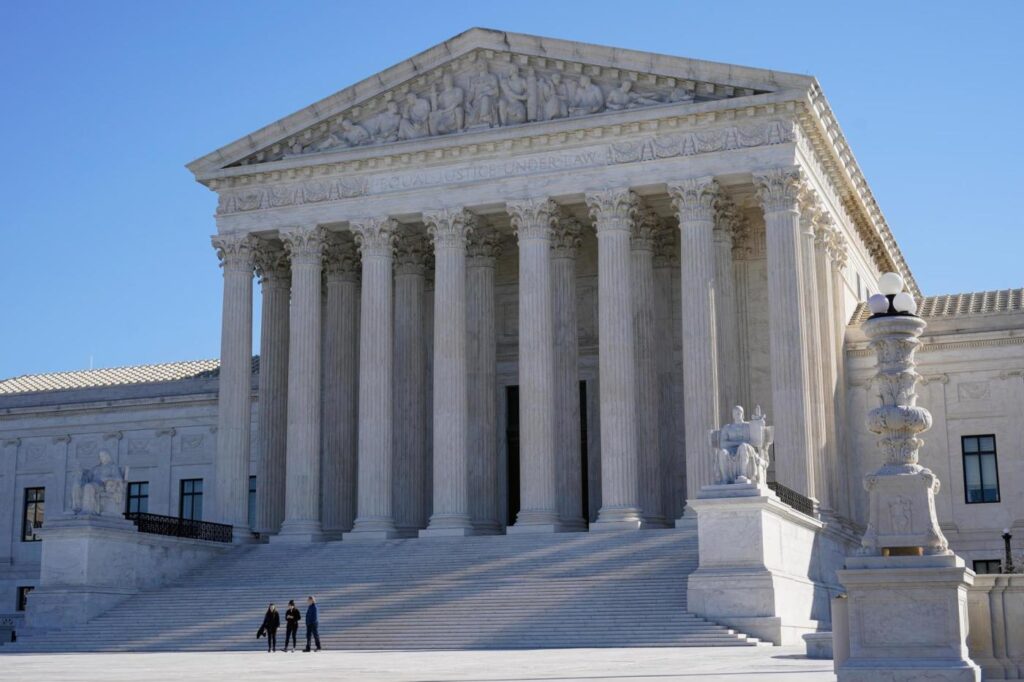
An intriguing problem will arise when Judge Ketanji Brown Jackson is confirmed by the U.S. Senate.
The judiciary committee will send her nomination to the Senate floor this week, and Majority Leader Chuck Schumer has predicted a vote to confirm her soon thereafter, before the end of April. Justice Breyer, however, will not have retired yet. His January 27, 2022, letter states, “I intend this decision to take effect when the Court rises for the summer recess this year (typically late June or early July) assuming that by then my successor has been nominated and confirmed.”
Apparently, Judge Jackson will return to her current duties on the U.S. Court of Appeals for the District of Columbia Circuit for almost three months, since there won’t be a seat for her on the Supreme Court until then.
This is most unusual. Typically, Supreme Court Justices retire “upon the confirmation” of their successor. Justice Breyer is free to do so as well, despite what he said in his letter to President Biden. Here is why he might.
The court’s most controversial cases are almost always decided at the very end of the term—in early July. Foremost among these this year is the challenge to Mississippi’s abortion law. The case might present the occasion to reverse Roe v. Wade. For institutional reasons important to both Justice Breyer and Chief Justice Roberts, it would be better if this decision, controversial in almost any of its possible permutations, were not decided four months before the midterm elections.
Last fall, Justice Breyer published a new book, “The Authority of the Court and the Peril of Politics,” in which he decries the growing perception of the court as a political institution. Chief Justice Roberts has also criticized this trend. He publicly rebuked President Trump for referring to federal judges as “Bush judges,” or “Obama judges,” noting that the effectiveness of the Supreme Court depends on federal judges being seen as nonpartisan.
There is no doubt that a Supreme Court opinion on abortion this coming July would vault the Supreme Court into foremost focus in the campaigns for U.S. Senate in November. Expanding the size of the court would inevitably arise as well, a proposition pushed by liberal politicians that Justice Breyer has vigorously opposed. Chief Justice Roberts has broken from the conservative bloc on several major occasions at least in part to avoid a partisan characterization of the court, and he, too, is no fan of court-packing.
The premise for rescheduling the abortion case for the non-election year of 2023 would be to allow Justice Jackson to participate. A change in court membership is the most frequent reason given for rescheduling. Chief Justice Roberts would certainly push for this. The rest of the court would likely agree. Only four votes are needed to postpone a case: Breyer and Roberts need only two more.
Justice Breyer has consistently defended Roe v. Wade, but he does not have to worry that his replacement by Justice Jackson would change the Court’s eventual vote. Judge Jackson’s nomination was endorsed by the National Abortion Rights Action League.
Related Articles
The implosion of Eric Garcetti has been a joy to watch
The far-reaching federal probe of Project Veritas is an attack on press freedom
Is Dodger Stadium gondola proposal pie in the sky?
Reality slaps us in the face
America’s energy security and national security go hand-in-hand
A year’s delay might also bring about another vacancy on the court. Wishing no justice anything but long life and health, it is still a fact that the oldest remaining member of the court is Justice Clarence Thomas, who was just released from a week’s hospitalization in March. One more vacancy for President Biden to fill could be a very attractive prospect to defenders of Roe v. Wade.
If Breyer were to leave soon after Jackson’s confirmation, other opinions he may wish to write would also be foregone. That would be a sacrifice for a justice like Breyer who has written thoughtfully for over almost 28 years on the Supreme Court, but it would be a fitting gesture by a justice who has focused so intently on preserving the public’s respect for the Supreme Court.
Tom Campbell is a professor of law and a professor of economics at Chapman University. He was a law clerk to US Supreme Court Justice Byron White, and a member of the House of Representatives, where he served on the Judiciary Committee. He resigned from the Republican Party in 2016 and is in the process of forming a new political party in California, the Common Sense Party.
